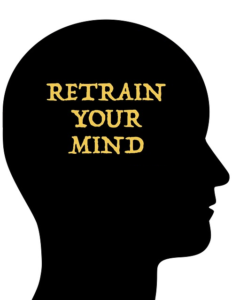7.2: Learning Hacks- Mindset
- Page ID
- 140534
The Hack
Research shows that the way you approach a challenge actually has a real impact on how successful you are.
It’s not about how good you are; it’s about how good you want to be.
The Story
Many of us tend to think of intelligence as something that we can’t really change. It turns out that this is incorrect. Furthermore, this line of thinking can actually prevent you from learning! Researchers call this a “fixed” mindset – it’s “fixed” because people that think this way don’t really believe they can learn new things.

On the other hand, some of us have what researchers call a “growth” mindset. They think of talent as something that is developed through effort. They understand that any of us can be good at anything as long as we’re willing to put in the time to build our skillset in that area.
So the hack here is simply to understand that the “fixed” mindset view is incorrect. You may have heard someone say “I’m just not a math person.” It turns out that there’s no such thing as “not a math person.” Anyone can learn math (or any other topic) – you just have to put in the time to practice.
The Research
Research by a professor at Stanford named Carol Dweck has shown that you can change your mindset. You may be handicapping yourself by your beliefs and attitudes about learning, telling yourself things like “I just don’t have the talent for this” or “I can’t learn this”. Dweck’s research demonstrates that you can change those beliefs and attitudes. That change in mindset can be the difference between doing well at challenges (like learning math!) or avoiding those challenges.
Keep in mind that your beliefs and attitudes are the result of many years of experience, so you won’t change your mindset overnight by simply deciding to be different. You may have to work at it. In particular, when you encounter difficulty—a poor grade on a test, a paper that has some negative comments from your professor, or a reading assignment that leaves you confused—that is the time that your mindset can have a huge impact on what you do next. Don’t let your mindset prevent you from realizing your abilities or reaching your potential!
The Source
Dweck, Carol S.. (2008) Mindset: The new psychology of success. Random House.
Licenses and Attributions
CC LICENSED CONTENT, ORIGINAL
- Learning Hacks: Mindset. Authored by: Lumen Learning. License: CC BY: Attribution
CC LICENSED CONTENT, SHARED PREVIOUSLY
- Image - Retrain Your Mind. Authored by: John Hain with modifications by Lumen Learning. Located at: https://pixabay.com/illustrations/mindset-mindfulness-meditation-743166/. License: Other. License Terms: Pixabay License

